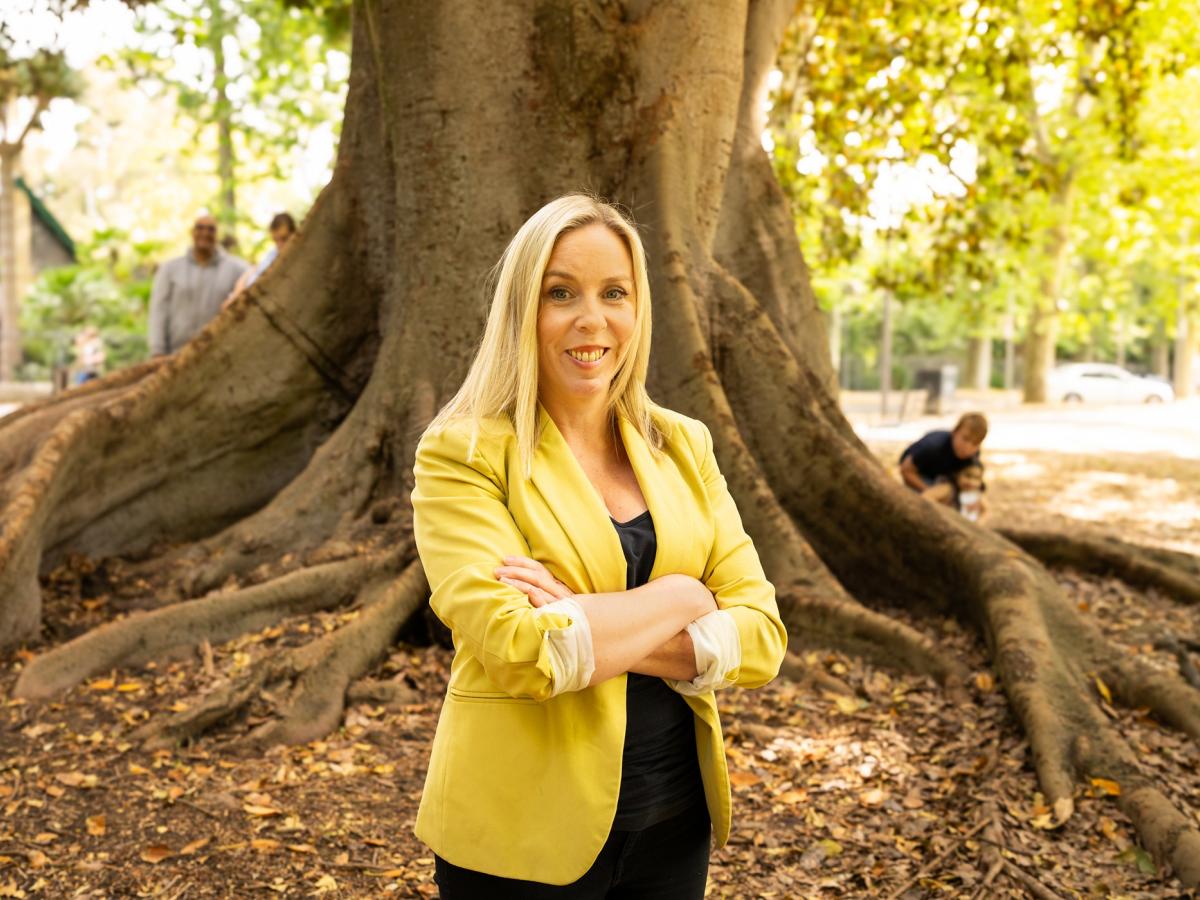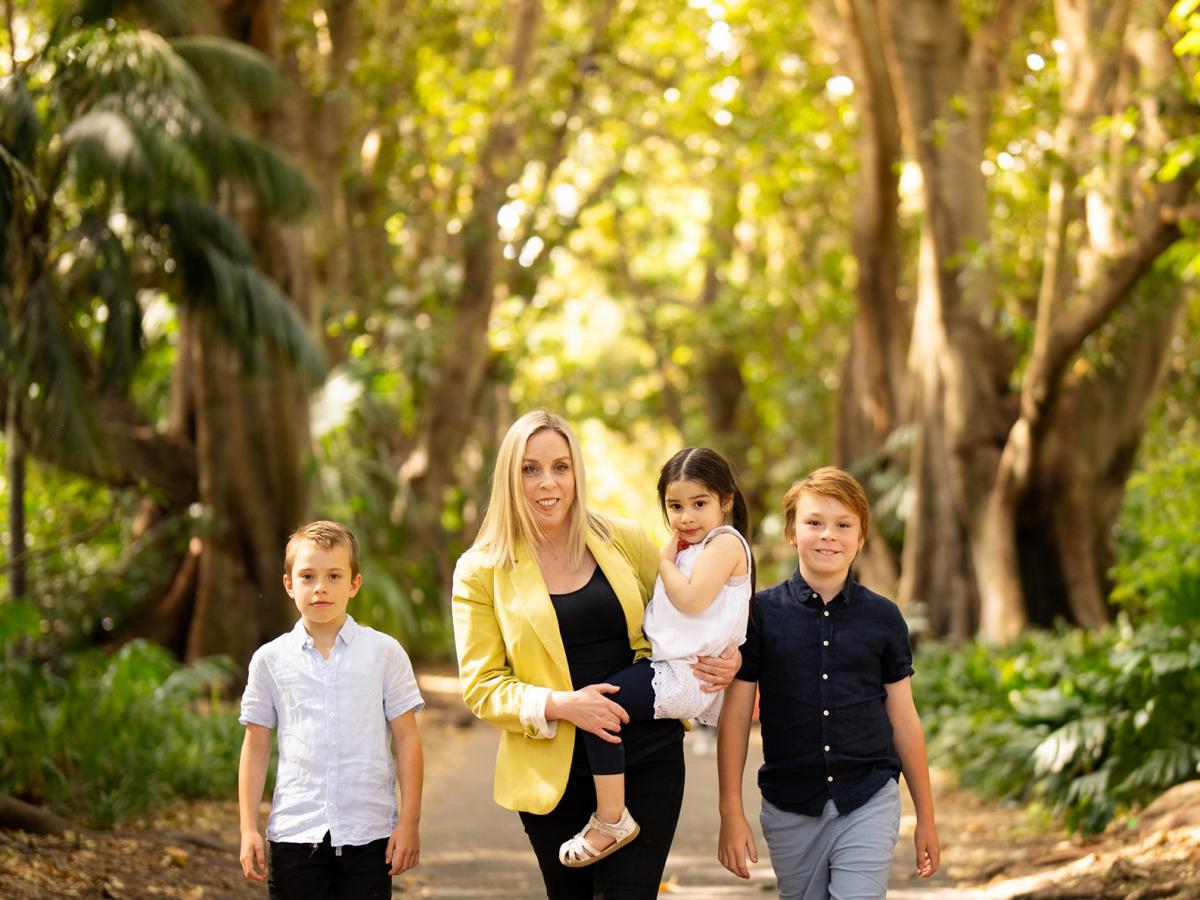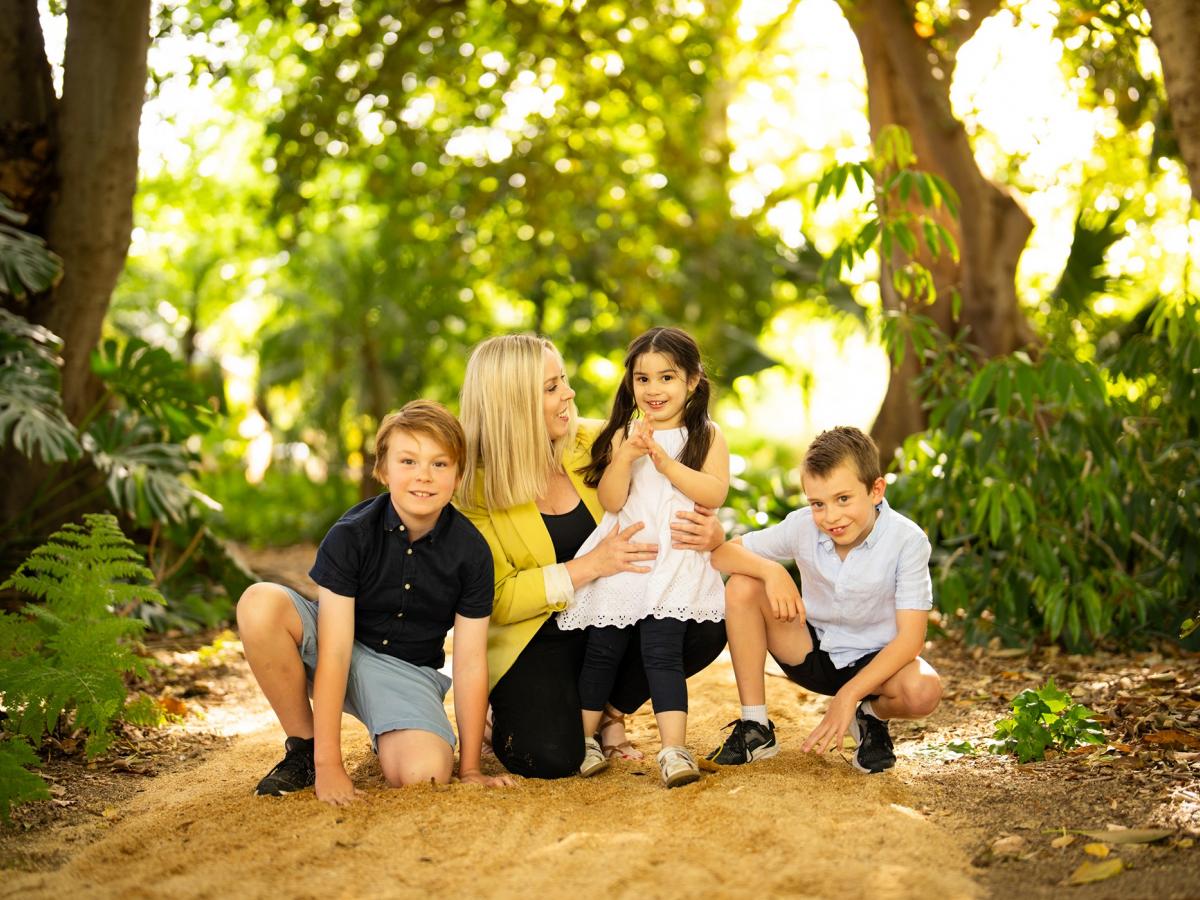Connected Conversations | Kylie Dunning

Kylie Dunning has been dedicated to improving reproductive health since she pivoted her career from gene therapy. She hopes to create new technologies that make fertility care more effective and accessible.
Having personally experienced some of the challenges of starting a family, Kylie wants to help hopeful parents who face the challenges of infertility—an often invisible and stigmatised condition affecting more than 15% of Australians. Alongside her work and family, she enjoys gardening and enjoying all that Adelaide has to offer.
Please tell us a little bit about yourself.
I’m Associate Professor Kylie Dunning, and I lead the Reproductive Success Group at the University of Adelaide, based within the School of Biomedicine and the Robinson Research Institute. My research is focused on improving fertility treatments and understanding the biological processes that underpin healthy reproduction. A key motivation behind my research is helping hopeful parents who face the challenges of infertility—an often invisible and stigmatised condition affecting more than 15% of Australians.
Having personally experienced some of the challenges of starting a family, I’m passionate about creating new technologies that could make fertility care more effective and accessible. My research combines biology and advanced optical approaches such as microfabrication, biophotonics, and label-free imaging to explore how oocytes and embryos develop. One of the highlights of my work has been developing a non-invasive technique to detect aneuploid cells in embryos, which could lead to improved IVF outcomes.
What inspires me most is the opportunity to make a positive difference in the lives of people navigating infertility, by improving the science and technology behind fertility care.

What was your first area of study and what drew you to this space?
I began my academic career in the field of gene therapy, focusing on engineering lentiviruses to treat genetic conditions such as cystic fibrosis and inherited lysosomal storage disorders. This work gave me valuable insights into the potential of science to address complex medical challenges and improve patient outcomes.
I transitioned to the field of reproductive biology, fascinated by the intricate biological processes that occur around the time of fertilisation and during early embryo development. The fact that life begins as a single cell and develops with such precision is incredible. This shift allowed me to explore new research opportunities and apply innovative technologies to better understand reproduction.
What has been your journey to get where you are today?
Balancing an academic career while raising and caring for three children is both rewarding and challenging. Being a mother has shaped my perspective and built resilience, teaching me to prioritise and adapt in ways I hadn’t imagined. It’s a constant juggling act—even now, not all the balls are always in the air—but this experience has also strengthened my determination to create a fulfilling career while being present for my family.

What are you working on now?
Right now, my work focuses on tackling one of the biggest challenges in IVF: identifying and selecting the embryo with the highest developmental potential from a cohort of embryos. If we can do this accurately, we can help people achieve their dream of having a baby sooner. Infertility affects 1 in 6 people globally, and better solutions are urgently needed to address the emotional and financial toll it can take. My research uses advanced, non-invasive photonics-based imaging techniques to extract critical molecular and biophysical information from embryos, helping identify those with the highest developmental potential.
I’m particularly excited about developing and applying cutting-edge technologies like hyperspectral imaging, digital holography, and optical tweezers. These tools offer unprecedented precision in assessing embryo health, paving the way for more effective IVF practices. My hope is that this work will transform how embryos are selected in clinical IVF and provide more families with the chance of having a baby.
What do you love most about working at the University of Adelaide?
The most rewarding part of my job is mentoring and training HDR students and early career scientists, guiding their development and shaping the next generation of researchers! Equally fulfilling is hearing directly from consumers—patients and professionals working in embryology labs at IVF clinics—about how much our research is needed. Their feedback reinforces the importance of what we do and motivates us to continue pushing boundaries to make a real difference in reproductive health.

What are some of the exciting developments happening globally in your area of research?
There are exciting developments on the horizon in the field of reproductive biology and IVF, particularly around transforming how embryos will be assessed for their potential to lead to a successful pregnancy. We aim to replace the current diagnostic methods—which are often subjective, invasive, and ineffective at improving live birth rates—with innovative approaches that are objective, non-invasive, and highly precise. These emerging technologies, such as advanced imaging and molecular analyses, have the potential to revolutionise IVF by providing accurate, data-driven insights into embryo health. This shift promises to improve clinical outcomes and make the process less stressful for patients.
What’s something that people are surprised to find out about you?
I’m a keen gardener!
What is one of the best decisions you have ever made?
Best decision: That I pivoted my approach to research in reproductive biology, incorporating technologies and approaches from the physical sciences. This has opened incredible possibilities for the reproductive biology field.

What is your favourite thing about living in Adelaide?
It’s a lovely city and a great place to live. I love that I can step out of my office during lunch and, within five minutes, be walking amongst one of the world’s most beautiful Botanic Gardens. Favourite place to eat: Golden Boy (North Terrace)
If you had to give a TED Talk about something unrelated to your work, what would you speak about?
About this: Australia needs a reading revolution
We need to change how reading is taught in schools to ensure every Australian child has the best opportunity for success in life.
